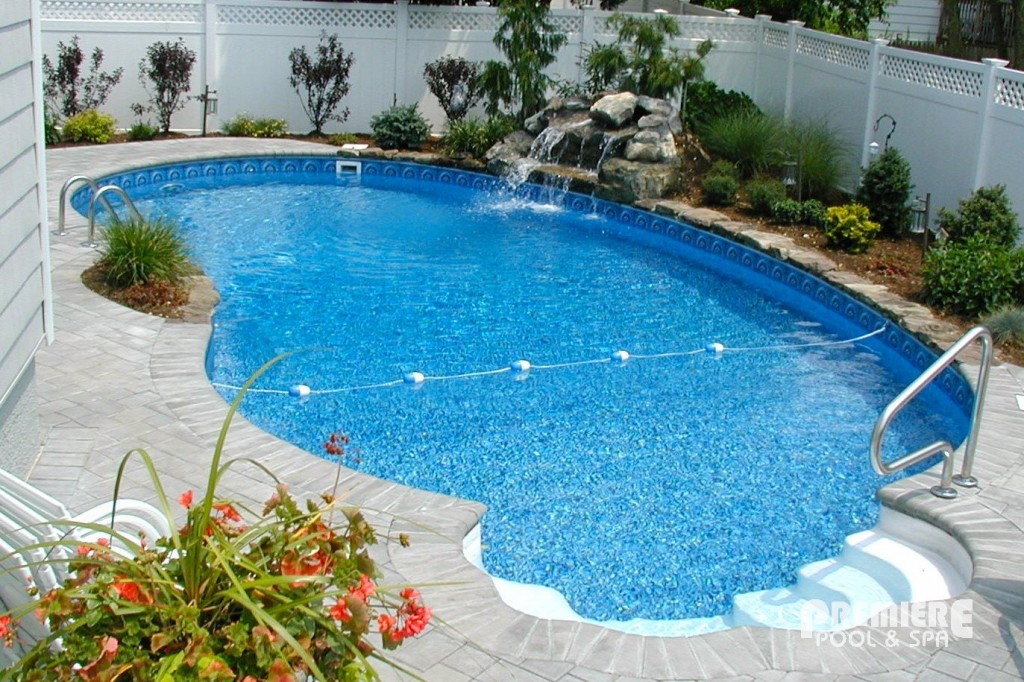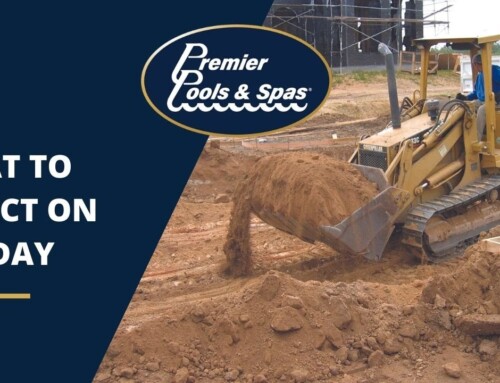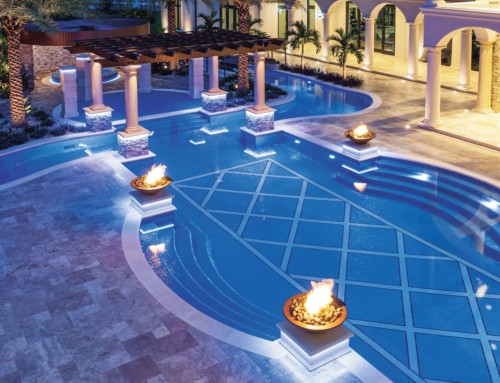Chlorine. Just saying the word makes people itchy. Your first pool memory probably took place in a chlorine pool, that’s how prevalent it is. But it’s irritating to the skin and the eyes. It makes a lot of people wear goggles. If chlorine is preventing you from getting a pool, maybe you should look into a salt water pool. Is it cheaper? More complicated? Let’s dig in.
Why do people use chlorine in the first place?
First, let’s talk about chlorine, and why it’s seemingly everywhere. Left untreated, swimming pools turn into murky, green messes. Algae and protozoa thrive in water when left alone, and bacteria, viruses and other contaminants can create an unsafe environment.
Chlorine is one of the most effective ways to sanitize your pool and protect you from all of that. It’s also relatively inexpensive.
The science behind chlorine
Chlorine neutralizes contaminants in the water because it’s a very reactive element. It acts swiftly in the presence of ammonia (usually from urine) or nitrogen from animal (or human) waste. When chlorine binds with other elements in the pool, it changes the chemical balance, so regular testing of chemicals is crucial to proper maintenance of a chlorine pool.
Pros of a salt water pool
Salt water pools have a mild affect on your eyes and skin. Chlorine levels are typically lower in a salt water pool so people who are sensitive to chlorine often report fewer irritations. It also doesn’t pose the long term health risks that chlorine might.
In salt water pools, the salt water chlorination system continually generates chlorine disinfectant compounds. This helps to avoid any buildup of byproducts during the disinfection process. Chloramines — or chlorine compounds — cause many of the symptoms that are related to chlorine reactions. Salt water pools are generally lower maintenance.
Chemical free?
Although salt water pools minimize the amount of harmful chemicals added into the water, they still deposit the same disinfectants to pool waters. Simply put, they aren’t chemical free. Plus, the salt in pool waters tends to collect on surfaces surrounding the pool and that can require regular cleaning. Otherwise, you’re facing corrosion. Salt water pools still need their water to be tested regularly for PH balance.







